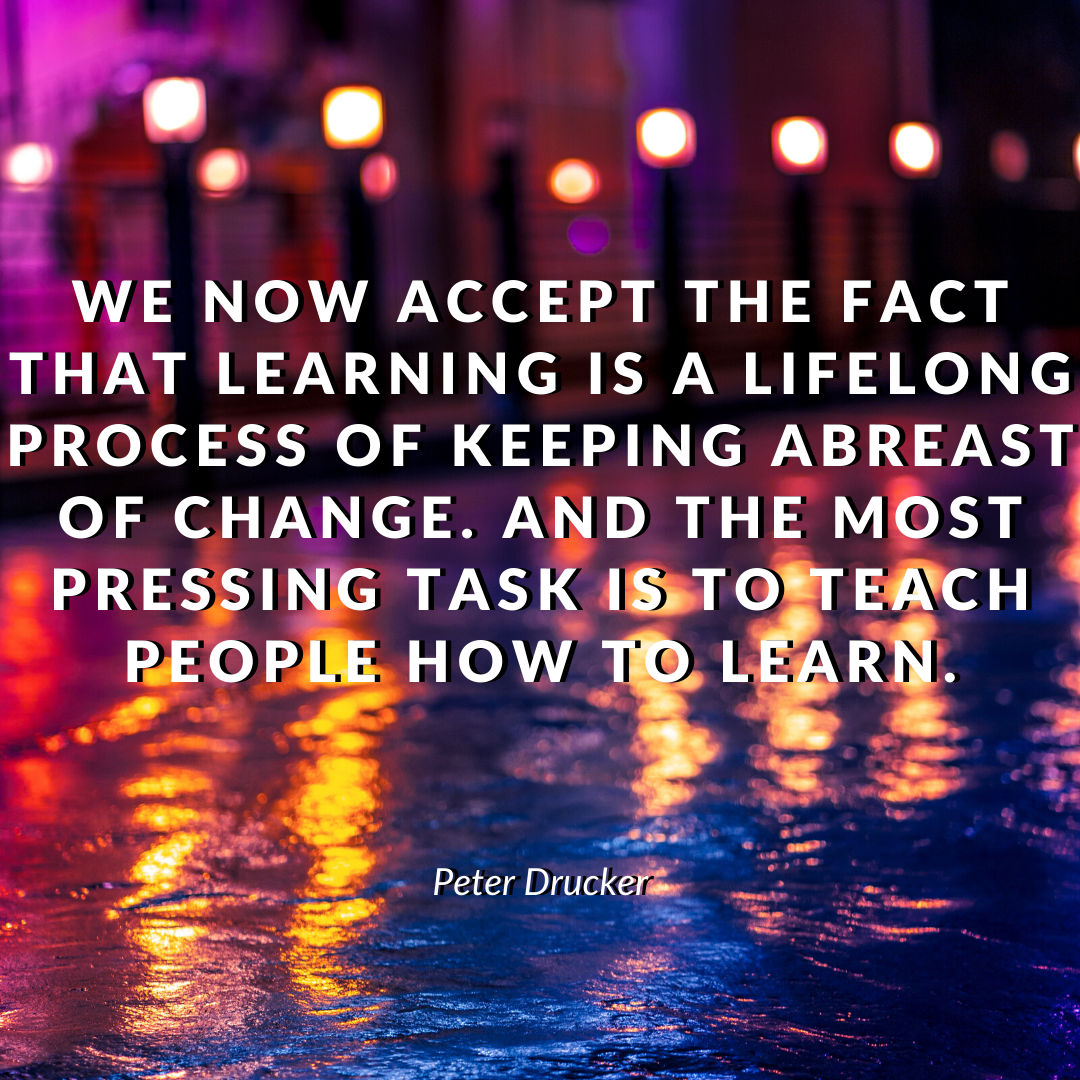What most people get wrong about learning
“We now accept the fact that learning is a lifelong process of keeping abreast of change. And the most pressing task is to teach people how to learn.”
— PETER DRUCKER
Let me know if this sounds familiar?
You are planning to learn something absolutely epic! For this example, let's say you can imagine learning a language to fluency. Something everyone dreams of.
You lay out your materials of what you need to cover, you focus on how you are going to do it, and you have researched how long people usually need to do it too.
You still and work out how long you will need. Now is the time to start.
BUT, you soon find that all is not going according to plan. Your progress from beginner to intermediate is nowhere near what you thought it would. You become discouraged.
There are two roads that are commonly chosen in this case:
1 - Disappointedly abandon your goals, stop learning and get back to life
2 - Double down and do ever more work. And if you don't chose this, you often feel even worse too.
The problem is that with our logical, planning brains, all too often we think of things in a linear fashion.
My progress from A to B will take X amount of time, therefore the ride between the two points should be smooth.
What we don't often think about and need reminding of is that we accelerate after the initial slow, stubborn period. Getting from 0 to 1 is often hard. Once this is achieved, 1 to 2 seems easier.
The beginning is usually the slow point, let's say with language learning. Yes, you can learn an advanced word before a beginner word, but using that beginner word will prepare your brain to handle a lot more!
Like a pyramid, the foundational and lower levels require more work and material that the higher levels, but the higher levels require more strategy and precision!
When I learnt Pi to 100 digits, I did it in less than 90 minutes. The first 45 minutes alone were the study part, the other 45 minutes was broken up into 5 minute practice sessions over time.
I accelerated because of the initial 45 minutes.
Our brains do this because our predictions are based on previous experiences, so if we spend 45 minutes just in one session, we assume the same pace in all sessions. However, this is not the case.
Remember, be patient and give your memories space and time to work their magic.
